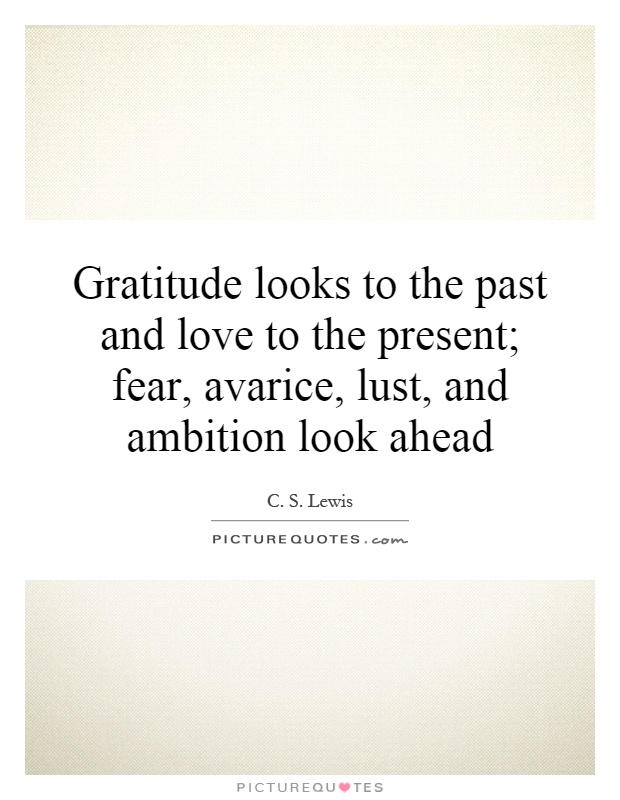
Gratitude looks to the past and love to the present; fear, avarice, lust, and ambition look ahead

C S Lewis QuotesThe Past QuotesPast Love QuotesThe Present QuotesLook Ahead QuotesAmbition And Love Quotes
Gratitude looks to the past and love to the present; fear, avarice, lust, and ambition look ahead
C.S. Lewis, the renowned author and theologian, often explored themes of gratitude, love, fear, avarice, lust, and ambition in his works. In his writings, Lewis delved into the complexities of human emotions and motivations, shedding light on the ways in which these emotions shape our lives and relationships.The quote, “Gratitude looks to the past and love to the present; fear, avarice, lust, and ambition look ahead,” encapsulates the essence of Lewis’ philosophy on human emotions. According to Lewis, gratitude is a virtue that is rooted in the past. It is the recognition and appreciation of the blessings and kindnesses that have been bestowed upon us. Gratitude allows us to acknowledge the goodness in our lives and to cultivate a sense of contentment and peace.
Love, on the other hand, is a powerful emotion that is focused on the present moment. It is the deep connection and affection that we feel for others, and it compels us to act with kindness, compassion, and selflessness. Love is the driving force that binds us to one another and gives meaning to our lives.
In contrast, fear, avarice, lust, and ambition are emotions that are driven by a focus on the future. Fear is the anticipation of harm or danger, while avarice is the insatiable desire for wealth and possessions. Lust is the intense craving for physical pleasure, and ambition is the relentless pursuit of power and success.
Lewis believed that these emotions, when unchecked, can lead us astray and cause us to lose sight of what truly matters in life. Fear can paralyze us and prevent us from taking risks and pursuing our dreams. Avarice, lust, and ambition can blind us to the needs and feelings of others, leading us to prioritize our own desires above all else.












 Friendship Quotes
Friendship Quotes Love Quotes
Love Quotes Life Quotes
Life Quotes Funny Quotes
Funny Quotes Motivational Quotes
Motivational Quotes Inspirational Quotes
Inspirational Quotes